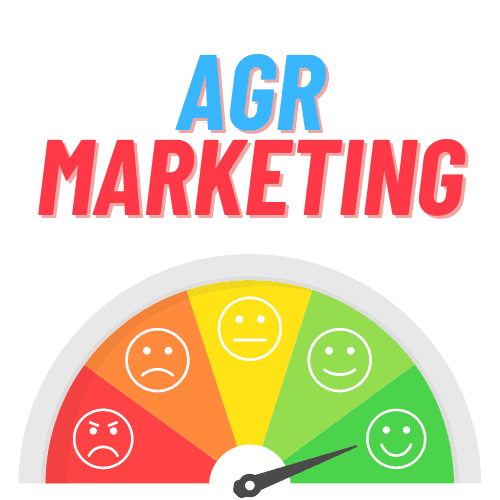Find the Best Website Keywords: Beginner Guide to SEO (2023)
Hey there! Are you struggling to improve your website’s visibility on search engines? As webmasters, conducting thorough SEO keyword research and analyzing the SERP to identify your website’s most effective SEO keywords is crucial.
Well, look no further because I’ve got the ultimate guide with valuable insights for you to find the best website keywords. Whether you’re searching for keyword opportunities or need keyword suggestions, I’ve got you covered. With the help of powerful keyword tools, you can optimize your content and boost your online presence.
In today’s digital landscape, keyword research is crucial for web admins who want to drive targeted organic traffic to their websites. By identifying and optimizing for the right SEO keywords, including long tail keywords, web admins can improve their website’s visibility and rankings in SERP analysis.
It’s like a secret code that unlocks the door to higher rankings and increased visibility for web admins. SEO keywords and a keyword research tool are essential to any effective SEO strategy. So, let’s dive into the importance of keywords for web admins and how they can significantly impact your SEO strategy.

Keywords are the search terms that users enter into search engines for information on specific topics. Incorporating relevant keywords into your website’s content is crucial for effective marketing and improving your site’s visibility in search engine results.
Effective keyword research helps web admins, and marketers understand the SEO keywords their target audience is searching for online, including long tail keywords. By identifying relevant keywords, web admins can optimize their website content for better ranking in search results.
This can be done by matching the intent of the keywords with the topics covered on the website. Effective keyword optimization is crucial for successful online marketing. Think of it as speaking the same language as webmasters and potential visitors.
When they search for SEO keywords or do SEO keyword research, you want your website to be at the top, providing them with relevant keyword ideas.
But why does this matter? Well, imagine having a beautifully designed website with high-quality content that no one finds because it lacks proper keyword optimization.
Without targeting the right long-tail keywords and understanding the search intent behind the search terms, your marketing efforts may go unnoticed. That would be a shame, right?
That’s why understanding the power of search terms and search intent is essential for boosting your online presence and rank.
Great! The introduction to this blog post will provide you with some keyword ideas to help improve your website’s search rank and find the best website keywords. By understanding search intent and incorporating relevant search terms into your content, you can optimize your site for better visibility and attract more organic traffic.
Follow these guidelines to use keywords and enhance your website’s search performance. Let me know if there’s anything else I can assist you with regarding keyword ideas, tools, search terms, or search intent!
Understanding the Role of Keywords in SEO
Keywords play a vital role in optimizing your website for search engines. Using the right tool and strategically implementing keywords can significantly improve your website’s visibility and ranking. Understanding the significance of incorporating relevant keywords throughout your website’s content is essential.
By doing so, you are essentially “eating your dog food” and demonstrating to search engines that your website is a valuable resource for users searching for information related to those keywords. They act as a bridge between user queries and the relevant content on your site, ensuring that search engines understand what your website is about.
With the help of keyword ideas, a tool to optimize your website, you can ensure that search engines recognize the relevance of your dog food content. Properly optimizing keywords can significantly enhance your website’s chances of ranking higher in search results.
Using a keyword tool is essential for identifying the most relevant keywords to target. Additionally, implementing a “dogfooding” strategy using your product or service can provide valuable insights and feedback for improvement.
Strategic use of SEO keywords is a powerful tool that boosts search engine rankings and enhances the overall user experience. Incorporating these keywords effectively is like feeding your website the best dog food, ensuring it performs at its best.
Users searching for relevant food keywords are likelier to find the information they need on your website. This is a valuable tool for helping users find the food-related content they seek. This enhances user satisfaction and encourages them to spend more time on your site.
Additionally, it allows users to find relevant information about food using search terms that match their search intent, making it a valuable tool for improving user experience.
Consider the following food tool to make the most out of keywords for your website’s search intent.
- Conduct thorough keyword research using a tool to identify popular and relevant terms related to your industry or niche.
- Use long tail keywords that are specific and targeted, as they can attract more qualified traffic. These keywords are essential for understanding search intent and can be found using a keyword research tool. They have less competition than broader terms, making ranking higher in search results more accessible. By incorporating these keywords into your content, you can increase the visibility of your website and attract more relevant visitors.
- Incorporate the tool keywords naturally throughout your website’s content, including headings, subheadings, meta tags, and alt text for images.
- Regularly analyze keyword performance using tools like Google Analytics to identify trends and make necessary adjustments.
By understanding how keywords function as an SEO tool, you can optimize your website and improve its visibility in search results. Finding the best keywords requires ongoing analysis and adaptation based on changing trends and user behavior. Using the right tool is essential for effective keyword research.
Beginner’s Guide: How to Do Keyword Research for SEO
Start by brainstorming potential keywords related to your business or industry.
To find the best keywords for your website, brainstorm a list of potential keywords relevant to your business or industry. One helpful tool for this process is a keyword research tool. Consider the products or services you offer and the keywords or phrases people might use to search for them. Consider using a tool to help you identify these keywords.
Consider using seed keywords, a tool that helps generate more specific keyword ideas. Seed keywords are broad terms that can be used as a starting point for keyword research. For example:
- If you have an online clothing store, some seed keywords could be “women’s fashion,” “men’s clothing,” or “kids’ apparel.”
- If you’re a digital marketing agency, some seed keywords could be “SEO services,” “social media marketing,” or “content strategy.
Utilize keyword research tools to identify popular and relevant keywords within your niche.
Once you have a list of potential keywords, it’s time to utilize research tools to identify popular and relevant options within your niche. These tools can provide valuable insights into search volume, competition, and relevance. Some popular research tools include:
- Google Keyword Planner
- SEMrush
- Ahrefs
- Moz Keyword Explorer
Using these tools, you can gather data on how often specific keywords are searched for and gauge their level of competition in search engine results.
Analyze search volume, competition, and relevance to choose the most effective keywords.
After gathering data from keyword research tools, it’s crucial to analyze search volume, competition, and relevance to determine which keywords will be the most effective for your website. Here are some factors to consider:
- Search Volume: Look for keywords with a high search volume as they indicate higher demand.
- Competition: Assess the level of competition for each keyword by examining how many other websites are targeting the same term.
- Relevance: Ensure the chosen keywords align with your website’s content and target audience.
By carefully considering these factors, you can select the most effective keywords that will drive organic traffic to your website and improve your search engine optimization (SEO) efforts.
Practical Techniques for Finding the Best Keywords
Finding the best keywords to attract your target audience is crucial to ensure your website stands out online. Here are some effective techniques to help you identify those keywords and optimize your website:
- Conduct competitor analysis: Take a peek into what your competitors are doing right by analyzing their keyword strategy. Identify which keywords they successfully target and consider incorporating similar ones into your content.
- Utilize longtail keywords: These phrases contain three or more words and have lower competition but higher conversion potential. Longtail keywords allow you to target specific search terms that align with users’ intent, increasing the chances of attracting qualified traffic.
- Leverage Google Autocomplete and related searches: When you start typing a query into Google, it provides suggestions based on popular searches. Take advantage of this feature to generate additional keyword ideas. Scroll down to the bottom of the search results page to find related searches that can inspire relevant keywords for your website.
- Explore keyword research tools: An array of keyword research tools available that can assist you in finding the best website keywords. Tools like Keyword Magic Tool, SEMrush, or Ahrefs provide comprehensive data on search volume, competition level, and related keywords. Use these tools to expand your keyword list and discover new opportunities.
By implementing these techniques and incorporating relevant keywords throughout your website’s content, you’ll increase its visibility in search engine results pages (SERPs) and attract organic traffic from users actively searching for products or services like yours.
Remember, finding the best keywords is an ongoing process as trends change over time, so regularly review and update your keyword strategy to stay ahead of the competition.
You are analyzing Keyword Competition and PerformanceIt’ss crucial to analyze keyword competition and performance. By evaluating keyword difficulty using tools like Moz or SEMrush, you can determine how competitive a keyword is in your industry.
This helps you identify which keywords are worth targeting and which may be too challenging to rank.
Another essential step is assessing keyword performance metrics such as click-through (CTR) and conversion rates. These metrics give you insights into how well a particular keyword is performing in terms of attracting clicks and converting visitors into customers.
Monitoring these metrics lets you decide which keywords to prioritize in your optimization efforts.
Regularly monitoring rankings is also essential when analyzing keyword competition and performance. By keeping an eye on where your website ranks for specific keywords, you can identify opportunities for improvement or optimization.
If particular keywords consistently rank lower than desired, you can adjust your strategy accordingly to improve their performance.
In addition to using tools like Moz or SEMrush, Google Analytics provides valuable keyword data that can help analyze competition and performance. It offers insights into search volumes, competitor rankings, and other relevant metrics that can inform your keyword strategy.
To effectively analyze keyword competition and performance:
- Use a reliable keyword tool like Moz or SEMrush to evaluate keyword difficulty.
- Assess click-through rates (CTR) and conversion rates for different keywords.
- Regularly monitor rankings to identify areas for improvement.
- Utilize Google Analytics for additional insights on search volumes, competitor rankings, and other relevant metrics.
By thoroughly analyzing the competition and performance of keywords, you can optimize your website’s visibility in search results and attract more targeted traffic from your target audience.
Unlocking Hidden Opportunities with Longtail Keywords
Longtail keywords are particular phrases that target niche audiences with high intent. These less competitive keywords can help you rank higher and attract more qualified traffic. You can uncover untapped opportunities within your industry by mining longtail keyword variations.
Here’s how to find the best longtail keywords for your website:
- Start with seed keywords: Brainstorm a list of general keywords related to your business or topic. These will serve as the starting point for finding more specific longtail variations.
- Use keyword research tools: Utilize online tools like Google Keyword Planner, SEMrush, or Ahrefs to discover potential longtail keyword opportunities. Enter your seed keywords and explore the suggested variations provided by these tools.
- Analyze search volume and competition: Look for longtail keywords with a decent search volume but lower competition. This indicates potential demand for those keywords without facing excessive competition from other websites.
- Focus on topic buckets: Group related longtail keywords into topic buckets to organize your content strategy effectively. This helps create targeted pages or blog posts around specific topics that align with user intent and preferences.
- Understand your niche: Research your industry thoroughly to identify niche-specific terms and phrases that potential customers might use when searching for products or services like yours. Incorporate these longtail keywords strategically into your website content.
- Consider user intent: Consider the intention behind each longtail keyword and tailor your content accordingly. Are users looking for information, purchasing, or seeking solutions? Aligning content with user intent increases its relevance and effectiveness.
- Monitor performance through analytics: Track the performance of your chosen longtail keywords using web analytics tools like Google Analytics or Moz Pro. Regularly analyze metrics such as organic traffic, bounce rate, conversion rate, and engagement to refine your keyword strategy further.
Unlocking hidden opportunities with longtail keywords requires continuous monitoring, adaptation, and experimentation. Stay proactive in identifying new longtail keyword variations that can give your business a competitive edge.
So, start exploring the vast potential of longtail keywords and watch your website attract more qualified traffic and drive valuable business outcomes.
Maximizing Impact with Keyword Variations and Local Keywords
- Diversify your keyword strategy by incorporating variations of your particular keyword.
- Incorporate location-specific terms into your content if you have a local business presence.
- Customize landing pages with localized keywords to improve visibility in local search results.
Finding the best keywords is crucial. By diversifying your keyword strategy and incorporating variations of your particular keyword, you can maximize the impact of your website’s content.
One effective way to expand your keyword reach is by using variations of your target keywords. Instead of solely focusing on a single keyword, consider using related terms or synonyms that potential visitors might use when searching for information or products/services similar to yours.
This approach helps you capture a wider audience and enhances the relevance and depth of your content.
Incorporating location-specific terms into their content is essential for businesses with a local presence. You increase the likelihood of appearing in local search results by including the name of your target location in critical areas such as page titles, headings, meta descriptions, and throughout the body text.
For example, if you own a bakery in New York City targeting customers looking for “best cupcakes,” optimize your content by including phrases like “best cupcakes in NYC” or “top-rated cupcakes near me.”
Furthermore, customizing landing pages with localized keywords can significantly improve visibility in local search results. Creating separate landing pages tailored to specific locations allows you to address users’ unique needs and preferences from different areas.
This approach increases the chances of ranking higher for relevant searches within those particular locations.
Mastering Keyword Research for Website Optimization
Congratulations! You have completed several sections that will equip you with the knowledge and techniques to master keyword research for website optimization.
By understanding the role of keywords in SEO, learning how to do keyword research effectively, analyzing competition and performance, and unlocking hidden opportunities with longtail and local keywords, you are well on your way to improving your website’s visibility.
Now that you have a solid foundation in keyword research, it’s time to put what you’ve learned into action. Start by implementing the strategies discussed in this blog post on your website.
Experiment with different variations and combinations of keywords to see what works best for your niche. Finding the right keywords is an ongoing process, so continually refine and adjust your strategy based on data-driven insights.
FAQs – Find the Best Website Keywords
What tools can I use for keyword research?
Several popular tools are available to find the best website keywords, such as Google Keyword Planner, SEMrush, Moz Keyword Explorer, Ahrefs Keywords Explorer, and Ubersuggest.
These tools provide valuable insights into search volume, competition level, related keywords, and other essential metrics to help you identify your website’s best keywords.
How many keywords should I target on my website?
The number of keywords you should target depends on various factors, such as your website’s size, the industry’s or niche’s competitiveness, and overall marketing goals. Focusing on a mix of short-tail (broad) and longtail (specific) keywords that align with your content strategy while considering user intent is generally recommended.
Can I rank for highly competitive keywords to find the best website keywords?
Ranking for highly competitive keywords can be challenging but not impossible. It requires a combination of solid SEO practices like high-quality content creation, promotion strategies, and consistent effort over time.
Targeting less competitive longtail or localized keywords can help drive targeted traffic while building authority in your niche.
How often should I update my keyword strategy?
Keyword strategies should be regularly reviewed and updated to stay relevant in the ever-changing landscape of search engine algorithms and user behavior. Aim to check your keyword strategy at least once every few months or whenever you notice significant changes in your website’s performance or industry trends.
Should I focus solely on organic keywords?
While organic keywords are crucial for driving free, targeted traffic to your website, it’s also important to consider other aspects of digital marketing. Paid advertising through platforms like Google Ads can complement your organic efforts by targeting specific keywords and reaching a wider audience.
A well-rounded approach combining organic and paid strategies can yield optimal results for your website’s visibility and growth. Now have fun and find the best website keywords.
We’re reader-supported. We may earn an affiliate commission when you buy through links on our site.

Angus Robertson is an authority in online marketing, affiliate marketing, and Search Engine Optimization (SEO). With an innate passion for the digital world, he has spent the last two decades assisting businesses in amplifying their online presence and boosting profitability.







